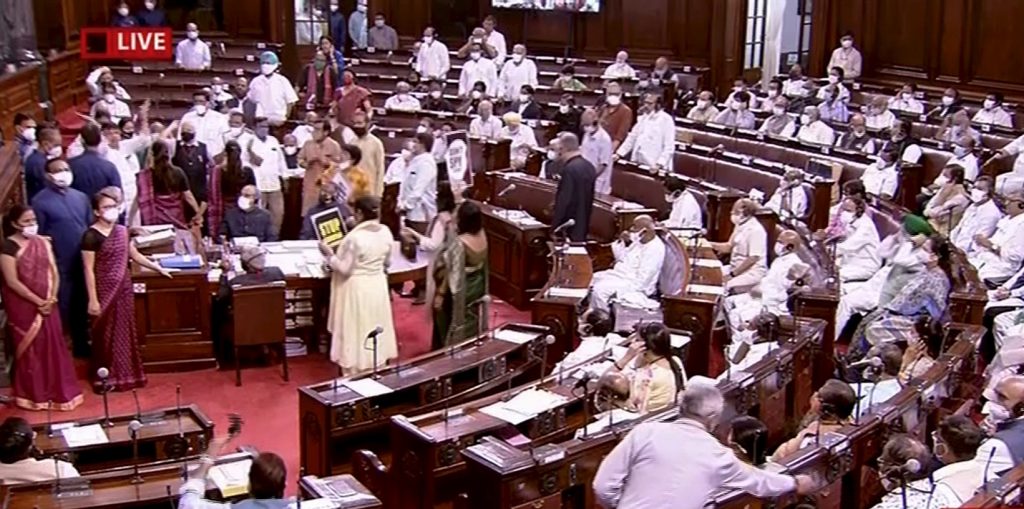New Delhi: Opposition members both in Rajya Sabha and Lok Sabha raised Monday their concerns over price rise. They asked the government to take measures to protect interests of the common people who have been hit hard by it. DMK member TKS Elangovan said the government has completely ignored the interests of the poor such as daily wagers in the Union Budget for 2022-23.
“Budget has failed to provide relief to the common man and the poorest of the poor of this country,” Elangovan said. He added prices of diesel and petrol have gone up which will have a cascading effect on all of them.
The budget’s purpose should be to protect the citizens and to provide socio-economic protection, stated Elangovan.
“What this budget has done. They (government) have talked about rich people and getting money back from borrowers. Bit what is the progressive idea for the people who are suffering,” asked Elangovan. He also asked the government to fulfil its promise to implement the MS Swaminathan Committee report, which had suggested fixing the minimum support price (MSP) for all crops at 150 per cent of the input cost.
The upper house was having a discussion on the Appropriation Bill, 2022.
Amar Patnaik of the BJD said inequality in the society has increased. The government would have to rethink the economic policy for inclusive growth. According to Patnaik, too much inequality would give rise to social strife. The total number of the middle class has gone down by 3.2 crore in 2020. In 1981 the share of the middle class in total income was 45 per cent and it has decreased to 22.9 per cent in 2020.
“We need to have a greater investment in education, health and nutrition and the purchasing power of the bottom of the pyramid has to be increased,” Patnaik said. “For this, we have to increase the revenue,” he added.
Patnaik suggested for the reintroduction of wealth tax and Covid tax to generate resources for meeting social sector expenditure.
“The tax-GDP ratio is hovering around 10.7 per cent currently and in last five years, (it was) 11.5 per cent. We have to increase our tax-GDP ratio. Some way, some method has to be devised,” he said.
V Vijaisai Reddy of the YSRCP said a parity between taxation and inflation is needed because of falling income and rising inflation and stagnant tax relief. “The common man cannot survive,” said Reddy and added there is a decline in savings by taxpayers.
Provident Fund interest rates are falling and have come down to 8.1 per cent, which is the lowest in the last 41 years. “This would impact 5 crore Indian. No reforms have been initiated by the NDA government to make the National Pension System lucrative for taxpayers,” Reddy pointed out. He also suggested removing GST on health insurance to make it more affordable to the masses.
V Sivadasan of the CPI(M) said now the daily minimum wage in several states is even below the cost of two litres of petrol and that there is a huge decrease in wages. “Workers also have dreams of better food, education, but unable to fulfil them with their wage,” he said.
